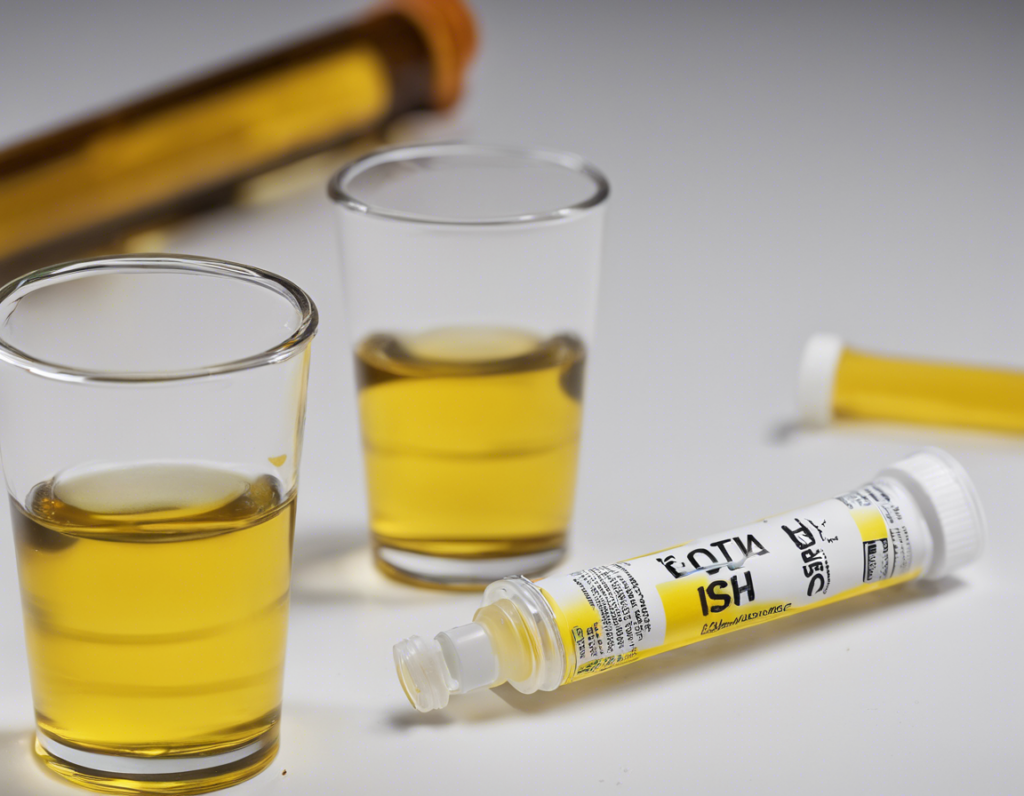Drug testing is a common practice in many industries, and for individuals on probation or seeking employment, it can be a stressful endeavor. If you have recently consumed illicit substances and are facing an upcoming drug test, you may have considered using fake urine as a means to pass the test. While using fake urine can be a viable solution, it is crucial to understand the risks involved and how to proceed safely and effectively.
Understanding Drug Testing
Before delving into the details of using fake urine, it is essential to understand how drug testing works. Drug tests typically analyze a sample of urine, blood, hair, or saliva to detect the presence of specific drugs or their metabolites. The most common type of drug test is a urine test, which is often used due to its non-invasive nature, cost-effectiveness, and ability to detect a wide range of substances.
When a person consumes drugs, the body metabolizes these substances, breaking them down into metabolites that can be detected in bodily fluids such as urine. Depending on the type of drug consumed, its half-life, and the individual’s metabolism, these metabolites can remain detectable in urine for varying lengths of time.
Using Fake Urine for Drug Testing
Fake urine, also known as synthetic urine, is a manufactured substance that closely resembles real human urine in terms of appearance, composition, pH levels, and temperature. It is designed to be a substitute for real urine in drug tests, fooling testing facilities into believing that the sample provided is genuine and drug-free. Synthetic urine is available for purchase from various online retailers, head shops, and specialty stores.
When using fake urine for a drug test, it is crucial to follow certain guidelines to increase your chances of passing the test successfully. Here are some essential tips to consider:
Tips for Using Fake Urine Safely
1. Choose a High-Quality Synthetic Urine Product:
Not all synthetic urine products are created equal. It is essential to opt for a high-quality brand that closely mimics real urine and contains the necessary components such as urea, creatinine, and uric acid. Inferior products may raise suspicion during testing and lead to a failed result.
2. Check the Temperature:
One of the most critical factors in ensuring the authenticity of fake urine is its temperature. Human urine is typically around 98-100°F when freshly voided. Therefore, it is crucial to heat the synthetic urine to the correct temperature before submitting it for testing. Many synthetic urine kits come with a heating pad or heat activator to help you achieve the desired temperature range.
3. Practice Discretion:
When substituting fake urine for a real sample, it is essential to be discreet and avoid any suspicious behavior. Make sure to conceal the synthetic urine effectively and use it in a confident and natural manner during the testing process.
4. Consider Your Timing:
It is essential to time the use of fake urine correctly to ensure its effectiveness. Some synthetic urine products have a limited shelf life once activated, so it is crucial to plan accordingly and use the product before it expires.
5. Research the Testing Facility:
Before using fake urine for a drug test, it is beneficial to conduct research on the testing facility and its protocols. Understanding the testing procedures and security measures in place can help you better prepare and avoid detection.
Risks of Using Fake Urine
While using fake urine can be an effective method for passing a drug test, it is important to be aware of the risks involved. Testing facilities are constantly updating their methods to detect synthetic urine, and if any abnormalities are detected during testing, it can result in serious consequences, including failed tests, legal implications, and job loss.
Additionally, some drug tests may include additional measures to verify the authenticity of the urine sample, such as observed collections or laboratory analysis. In such cases, using fake urine becomes significantly riskier and may not guarantee a successful outcome.
Frequently Asked Questions (FAQs)
Q1: Is using fake urine illegal?
A1: While using fake urine for drug tests is not illegal in most jurisdictions, it can have legal consequences if you are caught. If you are subject to federal drug testing or testing under specific regulations, such as the Department of Transportation (DOT), using synthetic urine is prohibited.
Q2: Can laboratories detect fake urine?
A2: Modern testing facilities have advanced methods to detect synthetic urine, including checking for pH levels, creatinine levels, and temperature inconsistencies. It is crucial to use a high-quality product and follow all instructions meticulously to minimize the risk of detection.
Q3: How long does fake urine last?
A3: Synthetic urine products typically have a shelf life of 1-2 years if stored properly in a cool, dark place. Once the synthetic urine is activated, it is advisable to use it within a few hours to ensure its effectiveness.
Q4: Can I reheat fake urine?
A4: It is not recommended to reheat synthetic urine once it has been heated and cooled. Repeated heating and cooling can alter the chemical composition of the fake urine, raising suspicions during testing.
Q5: Are there alternatives to using fake urine?
A5: While fake urine is a popular option for passing drug tests, there are alternative methods that may be effective, such as detox drinks, cleansing programs, or abstaining from drug use for a certain period. It is essential to choose a method that aligns with your timeline and circumstances.
In conclusion, using fake urine for a drug test can be a viable solution for individuals seeking to pass a test successfully. However, it is crucial to approach this method with caution, careful planning, and adherence to guidelines to minimize the risks involved. By following the tips provided and staying informed about testing procedures, you can increase your chances of achieving a favorable outcome.
